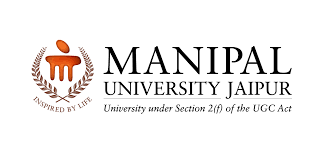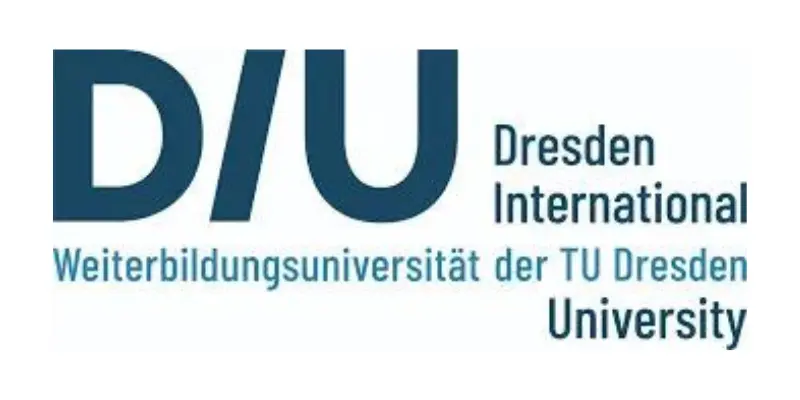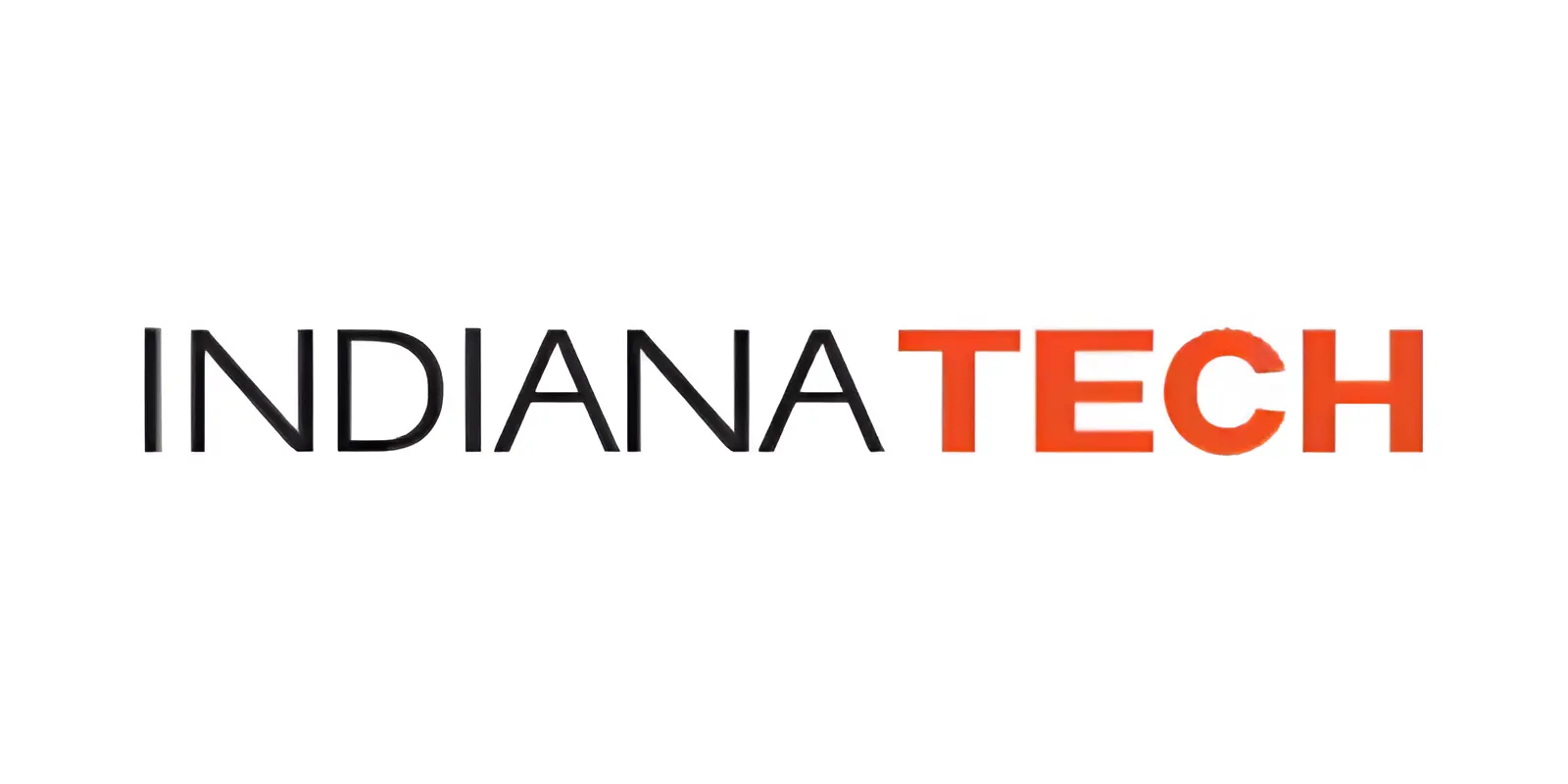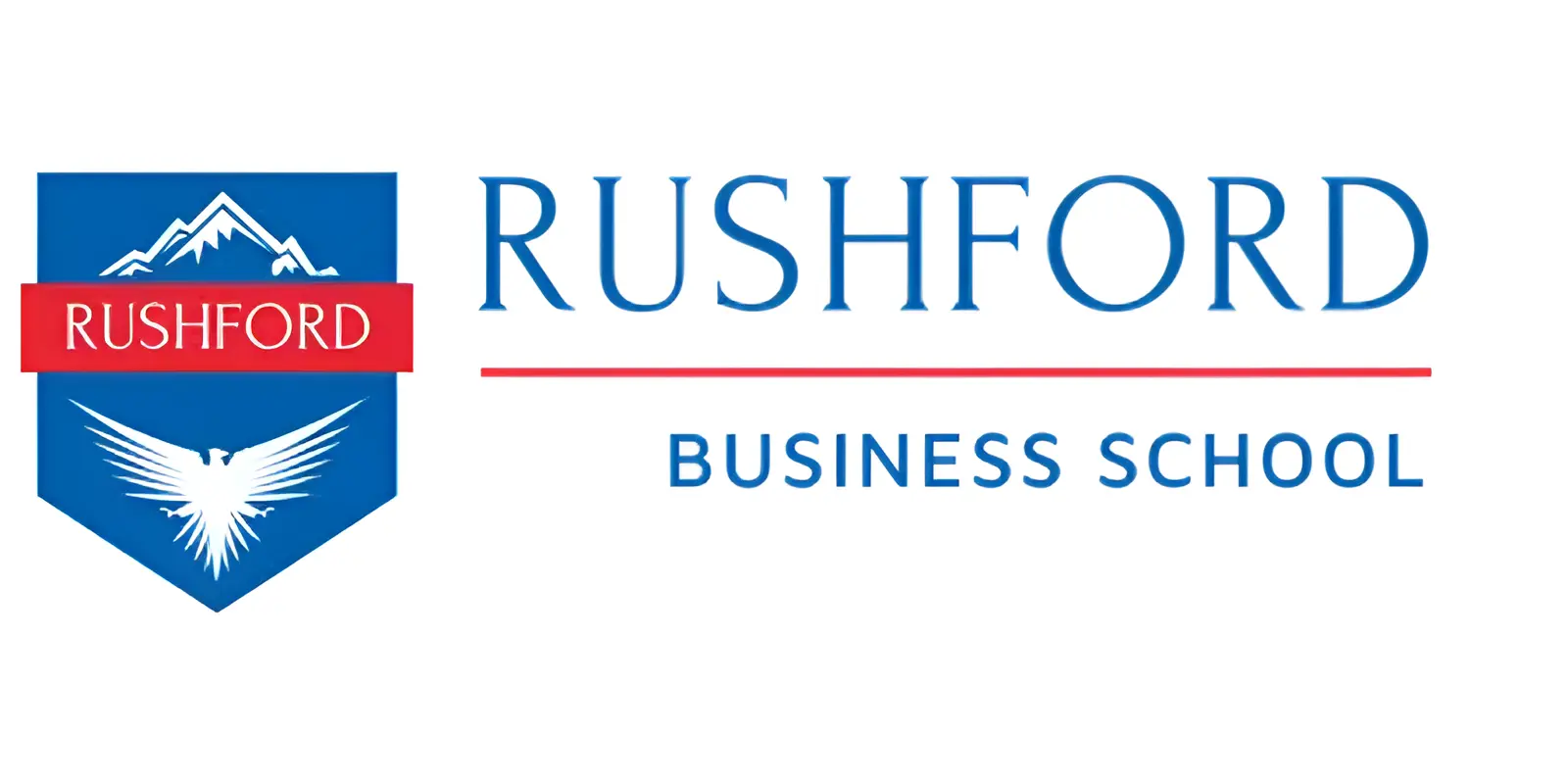Expert Guidance
Receive unparalleled mentorship and support from industry experts dedicated to nurturing your career growth.
Together, we can build a better learning future.











Receive unparalleled mentorship and support from industry experts dedicated to nurturing your career growth.
Explore customized career trajectories designed to align with your aspirations, ensuring a seamless transition into your desired profession.
Unlock a world of possibilities with our comprehensive resources and networks, paving the way for success in your chosen career path.


The Doctorate in Business Administration (DBA) program at the Indian School of Technology and Management (ISTM) is designed for experienced professionals and executives seeking advanced knowledge and leadership skills to thrive in the competitive business world. This program emphasizes cutting-edge business practices, research-driven strategies, and global insights, empowering students to become thought leaders and innovators in their industries. The DBA curriculum is a perfect blend of theoretical understanding and practical application, focusing on areas like organizational leadership, business strategy, corporate governance, and innovation management. Through this program, students will engage in high-level research and case studies, preparing them to solve complex business challenges and drive organizational success.
At ISTM, the DBA program also offers a flexible and supportive learning environment tailored to the needs of working professionals. The faculty comprises industry experts and distinguished scholars who guide students in producing impactful research that contributes to both academic and business fields. With a strong focus on strategic thinking, innovation, and leadership, ISTMs DBA program equips students to navigate the evolving business landscape while maintaining ethical standards and social responsibility.
The Doctorate in Information Technology (DIT) program at the Indian School of Technology and Management (ISTM) is an advanced research-driven program designed for IT professionals seeking to become industry leaders and innovators. This program provides students with deep technical expertise and strategic insight, focusing on emerging technologies, cybersecurity, big data analytics, and IT governance. Through a rigorous curriculum and applied research, students will address real-world IT challenges, contribute to technological advancements, and develop solutions that enhance organizational efficiency. ISTMs DIT program equips students with the skills and knowledge to lead IT departments, drive innovation, and shape the future of the global technology landscape.
Students in the DIT program at ISTM benefit from a collaborative learning environment with access to cutting-edge resources and support from experienced faculty members. The program is tailored to professionals who wish to balance their studies with work, offering flexible schedules and online learning options. Graduates will be well-prepared for leadership roles in academia, research, or industry, and will be positioned to influence the direction of IT policies and practices at the highest level.
The Professional Master's Program in Business Administration (PMBA) at the Indian School of Technology and Management (ISTM) is tailored for working professionals aiming to elevate their careers and leadership capabilities. This program provides a comprehensive understanding of business functions, including strategic management, finance, marketing, and operations, while integrating real-world business challenges and industry trends. The PMBA is designed to accommodate the schedules of busy professionals through flexible learning options, allowing students to immediately apply what they learn in the workplace. Through case studies, collaborative projects, and leadership-focused courses, students gain the skills needed to drive business growth, improve operational efficiency, and make informed decisions in a rapidly evolving global market.
ISTM's PMBA program is led by experienced faculty with industry expertise, offering mentorship and guidance throughout the learning journey. The curriculum is designed not only to impart business knowledge but also to enhance problem-solving, decision-making, and leadership skills. Graduates of the program emerge as well-rounded business leaders who can manage complex business environments, adapt to new technologies, and drive organizational success while maintaining ethical and sustainable practices.
The Masters Program in Business Management (MBM) at the Indian School of Technology and Management (ISTM) is designed to prepare future business leaders with the skills and knowledge needed to excel in a competitive global market. This program focuses on comprehensive management education, covering areas such as leadership, strategic planning, financial analysis, marketing, and human resource management. With a blend of theoretical understanding and practical application, the MBM equips students with the tools to solve complex business problems, manage cross-functional teams, and drive organizational success. ISTMs program is ideal for aspiring managers and professionals looking to enhance their business acumen and leadership potential.
The MBM at ISTM also emphasizes innovation, ethics, and global perspectives in business management, preparing students to navigate the rapidly changing business environment. With experienced faculty, real-world case studies, and opportunities for networking, the program ensures that graduates are well-positioned to take on leadership roles in diverse industries. The flexible learning structure accommodates working professionals, enabling them to balance their career development with academic progression.
The Masters in Computer Application (MCA) at the Indian School of Technology and Management (ISTM) is a comprehensive program designed for students looking to develop advanced technical skills and expertise in the field of computer science and IT. The MCA program focuses on core areas such as software development, data structures, algorithms, database management, and network security. Additionally, students gain proficiency in emerging technologies like cloud computing, artificial intelligence, and machine learning, making them highly adaptable to the ever-evolving IT industry. The program combines theoretical knowledge with practical experience, enabling students to design, develop, and implement cutting-edge solutions to real-world technological challenges.
ISTMs MCA program offers a hands-on learning approach, with opportunities to work on industry-relevant projects, internships, and collaborative research. The program is tailored to meet the needs of todays IT professionals, preparing graduates for leadership roles in software development, IT consulting, systems management, and more. With a focus on problem-solving, innovation, and technical expertise, the MCA degree ensures that graduates are well-equipped to thrive in dynamic technology-driven environments.
The Executive Masters in Business Management (EMBM) at ISTM is designed for mid-level and senior professionals aiming to advance their careers and enhance their leadership skills. The program provides a deep understanding of business strategy, organizational leadership, and operational management while focusing on real-world applications in complex business environments. The EMBM curriculum covers key areas such as strategic planning, financial management, marketing, and operations, with a special emphasis on innovation, global business trends, and leadership in fast-paced industries. This program helps executives sharpen their decision-making abilities, improve their management practices, and drive organizational growth and transformation.
The EMBM at ISTM is structured for working professionals, offering flexibility with online and part-time options. Students benefit from an interactive learning experience, with opportunities for networking and collaboration with peers from diverse industries. The program fosters leadership development through case studies, group projects, and mentorship from experienced faculty members. Graduates of the EMBM program are equipped to take on senior leadership roles and navigate the challenges of managing organizations in a rapidly evolving global marketplace.
The Masters Program in Public Health (MPH) at the Indian School of Technology and Management (ISTM) equips students with the knowledge and skills to address global health challenges and improve community health outcomes. This program focuses on a multidisciplinary approach to public health, covering epidemiology, biostatistics, health policy, environmental health, and health promotion. Students learn how to design and implement public health programs, analyze data for informed decision-making, and address health disparities across populations. ISTMs MPH program is ideal for individuals seeking to work in health care, government agencies, non-profit organizations, or international health organizations to make a significant impact on public health.
The MPH program is tailored for both early-career professionals and those looking to advance their careers in public health. It emphasizes real-world applications, with opportunities for fieldwork, internships, and collaboration with health professionals. ISTMs expert faculty bring a wealth of practical experience, guiding students to develop innovative solutions to public health issues and improving health systems both locally and globally.
The Post Graduate in Mechanical Engineering (PGME) at the Indian School of Technology and Management (ISTM) is a specialized program designed to provide in-depth knowledge and skills in the field of mechanical engineering. The program covers advanced topics such as thermodynamics, fluid mechanics, materials science, and mechanical systems design. Students gain expertise in designing, analyzing, and optimizing complex mechanical systems, preparing them for leadership roles in industries such as manufacturing, automotive, aerospace, and energy. The PGME program combines theoretical principles with hands-on experience, ensuring that graduates are ready to tackle real-world engineering challenges.
At ISTM, the PGME program emphasizes innovation and sustainable practices in mechanical engineering. Students work on cutting-edge projects, collaborate with industry professionals, and explore emerging technologies such as robotics and automation. The program also integrates research opportunities, allowing students to contribute to advancements in mechanical engineering while preparing them for roles in both industry and academia.
The Post Graduate in Computer Science (PGCS) at the Indian School of Technology and Management (ISTM) is a specialized program designed to equip students with advanced knowledge and practical skills in computer science. This program delves into areas such as software engineering, algorithms, data science, artificial intelligence, cybersecurity, and system architecture. Students learn to design and develop high-performance computing systems, create secure software applications, and manage large-scale data infrastructures. With a strong emphasis on emerging technologies like cloud computing and machine learning, the PGCS program prepares graduates for leadership roles in IT and technology-driven industries.
At ISTM, the PGCS program fosters an environment of innovation and problem-solving, with opportunities to work on cutting-edge projects that address real-world challenges. With a focus on research and applied learning, students are encouraged to contribute to technological advancements in areas such as machine learning, IoT, and big data. Graduates of the program will be well-prepared to pursue careers in software development, IT management, data science, and beyond.
The Post Graduate in Electronics and Communication (PGE&C) program at ISTM is designed to provide students with an in-depth understanding of modern electronics, communication systems, and embedded technologies. The curriculum covers areas such as digital signal processing, wireless communication, VLSI design, embedded systems, and microwave technology. This program aims to develop professionals who can design and implement advanced electronic systems and communication networks, contributing to industries such as telecommunications, defense, healthcare, and automation. Students engage in practical projects and research that enhance their ability to innovate in the fast-paced world of electronics and communication.
At ISTM, the PGE&C program is focused on combining theory with practical skills, preparing graduates to lead in roles where advanced electronics and communication expertise are required. With access to cutting-edge labs and experienced faculty, students work on projects that push the boundaries of modern communication technology, from 5G networks to IoT devices. The program also fosters critical thinking and problem-solving, enabling students to stay ahead in a rapidly evolving industry.
The Post Graduate in Information Technology (PGIT) at ISTM is designed to provide students with advanced expertise in IT systems, software development, network management, and emerging technologies. This program covers key areas such as IT infrastructure, database management, cybersecurity, cloud computing, and IT project management. Students gain a strong technical foundation, along with the leadership skills needed to manage IT teams and drive technological innovation within organizations. The PGIT program is tailored for individuals who aim to advance their careers in IT leadership, consulting, or systems management roles.
The program also emphasizes practical skills and real-world applications, with opportunities for hands-on projects, internships, and research. ISTMs PGIT curriculum is designed to stay ahead of industry trends, ensuring that graduates are well-equipped to navigate the dynamic IT landscape. Whether students are looking to specialize in cloud technologies, cybersecurity, or IT infrastructure, the PGIT program provides the tools to succeed in todays tech-driven business environment.
With cyber threats on the rise, cybersecurity professionals are in high demand. This postgraduate program in Cybersecurity covers ethical hacking, network security, risk assessment, and incident response. Students will gain hands-on experience with security tools like Kali Linux, Wireshark, and Metasploit, preparing them for roles in cybersecurity defense and risk management.
The Post Graduate Program in DevOps is designed to equip professionals with expertise in software development and IT operations. This program focuses on continuous integration and delivery (CI/CD), cloud computing, automation, and containerization. Through hands-on training in Docker, Kubernetes, AWS, and Terraform, students will master key DevOps tools and practices that streamline application development and deployment.
The Post Graduate Diploma in Management (PGDM) at the Indian School of Technology and Management (ISTM) is a dynamic and industry-focused program designed to equip students with advanced managerial skills and leadership capabilities. This program covers essential aspects of management such as business strategy, marketing, finance, operations, and human resource management. It provides students with a strong foundation in both the theoretical and practical aspects of business administration, preparing them to take on leadership roles in various industries. The PGDM program emphasizes critical thinking, problem-solving, and decision-making in complex business environments.
At ISTM, the PGDM program offers a comprehensive learning experience through case studies, group projects, internships, and industry interactions. Students gain exposure to real-world challenges and emerging business trends, allowing them to develop the skills needed to drive organizational success in todays competitive global marketplace. Whether students are looking to enhance their business knowledge or pivot their careers, the PGDM is an ideal pathway to success in management roles.
The Post Graduate Program in AI and ML(PGP in AI & ML) at ISTM is a cutting-edge program designed to provide in-depth knowledge and practical skills in AI technologies. This program covers key topics such as machine learning algorithms, deep learning, natural language processing, computer vision, and AI ethics. Students learn to build AI models, develop intelligent applications, and apply machine learning techniques to solve complex real-world problems. The PGP in AI & ML prepares graduates to be at the forefront of the AI revolution, with a strong focus on hands-on learning and industry-relevant projects.
At ISTM, the PGP in AI & ML program blends theoretical understanding with practical application, enabling students to work with large datasets, create predictive models, and deploy AI solutions in a variety of industries, including healthcare, finance, retail, and autonomous systems. The program is designed for individuals who want to advance their careers in AI and machine learning, equipping them with the tools to innovate in a rapidly evolving technological landscape.
The Post Graduate Diploma in Data Science (PGD in Data Science) at the Indian School of Technology and Management (ISTM) is designed to provide students with a comprehensive understanding of data science techniques, tools, and methodologies. This program equips students with the skills needed to handle vast amounts of data, analyze it for actionable insights, and make data-driven decisions. Key areas of study include statistical analysis, machine learning, big data technologies, data visualization, and predictive modeling. Students gain hands-on experience working with real-world data sets and utilizing popular data science tools such as Python, R, and SQL, preparing them for various roles in data-centric industries.
At ISTM, the PGD in Data Science offers a blend of theoretical knowledge and practical applications. Students participate in industry projects and case studies, allowing them to tackle real-world business challenges through data analysis. Whether students are looking to enhance their data literacy or transition into the field of data science, this program prepares them to be competitive in todays data-driven world.
The Post Graduate Diploma in Full Stack Development program at ISTM equips students with advanced skills to become proficient in both front-end and back-end development, covering the complete spectrum of web and mobile application development. This comprehensive course focuses on the latest technologies, frameworks, and programming languages such as HTML, CSS, JavaScript, Python, Java, Node.js, React, and databases like SQL and MongoDB. Students learn to design and build dynamic, responsive, and scalable applications while ensuring a strong foundation in data structures, algorithms, and version control systems like Git.
The program emphasizes hands-on learning through real-world projects, industry simulations, and collaboration in agile environments, preparing graduates to tackle complex software development challenges. By mastering both front-end and back-end development, students will be ready to step into a competitive job market as Full Stack Developers, capable of managing every stage of the development lifecycle—from conceptual design to deployment and maintenance.
The Post Graduate Diploma in Civil Engineering (PGD in Civil Engineering) at ISTM is a comprehensive program designed to provide advanced knowledge and practical skills in civil engineering. This course covers key topics such as structural engineering, geotechnical engineering, transportation engineering, environmental engineering, and construction management. Students learn the principles of designing, building, and maintaining infrastructure projects such as bridges, highways, dams, and buildings. The program emphasizes sustainable and innovative practices in civil engineering, equipping students with the expertise to address the challenges faced in the construction and infrastructure sectors.
At ISTM, the PGD in Civil Engineering blends theory with real-world applications through projects, case studies, and site visits. This ensures that graduates are well-prepared to meet industry demands and contribute to large-scale infrastructure projects globally. The program also focuses on the use of modern tools and software such as AutoCAD, STAAD Pro, and Revit, enhancing students technical skills for contemporary civil engineering roles.
The Bachelors Program in Management Studies at ISTM is designed to equip students with a comprehensive understanding of the principles and practices of management in various organizational contexts. The curriculum combines theoretical knowledge with practical applications, focusing on key areas such as finance, marketing, human resources, and operations management. Students engage in hands-on projects, case studies, and collaborative learning experiences that prepare them for real-world challenges in the business environment. Emphasizing critical thinking, problem-solving, and effective communication, the program fosters the development of future leaders capable of driving organizational success.
In addition to core management courses, the program encourages interdisciplinary exploration, allowing students to tailor their education to align with their career aspirations. Through internships and networking opportunities, students gain valuable insights into the industry, enhancing their employability upon graduation. With a focus on ethical decision-making and social responsibility, the Bachelors Program in Management Studies aims to develop not only skilled managers but also conscientious citizens who contribute positively to society and the global economy.
The Bachelors Program in Computer Applications is designed to provide students with a solid foundation in computer science and its practical applications across various industries. The curriculum covers essential topics such as programming, database management, web development, and software engineering, enabling students to gain both theoretical knowledge and hands-on experience. Through project-based learning, students develop critical technical skills and problem-solving abilities necessary to address real-world challenges in the digital landscape. The program emphasizes teamwork, communication, and adaptability, ensuring graduates are well-prepared to thrive in a fast-paced technology environment.
In addition to core computer applications courses, students have opportunities to specialize in areas like cybersecurity, data analytics, and mobile app development. Internships and industry collaborations provide valuable exposure to current technologies and practices, enhancing employability. By fostering a culture of innovation and ethical responsibility, the Bachelors Program in Computer Applications aims to cultivate tech-savvy professionals who are equipped to contribute to advancements in technology and improve user experiences across diverse platforms.
The Bachelors Program in Construction Technology is aimed at preparing students for a dynamic career in the construction and building industry. The curriculum combines principles of engineering, architecture, and project management, providing a comprehensive understanding of the construction process from planning to execution. Students engage in hands-on training, working with the latest technologies and tools used in construction, while also learning about sustainable practices and regulations that impact the industry. This program emphasizes safety, efficiency, and quality, ensuring that graduates are equipped to meet the demands of modern construction projects.
With a focus on real-world applications, the program includes opportunities for internships and collaboration with industry professionals. Students learn to manage construction projects effectively, coordinate with various stakeholders, and apply innovative solutions to complex challenges. By integrating technical knowledge with leadership and communication skills, the Bachelors Program in Construction Technology aims to produce skilled professionals who can lead projects and drive advancements in the construction field.
The Bachelors Program in Information Technology provides students with a comprehensive understanding of the use of technology to manage and process information. The curriculum covers a range of topics including network management, database systems, cybersecurity, and software development. Through a blend of theoretical coursework and hands-on projects, students learn to design, implement, and maintain IT solutions that support organizational goals. The program emphasizes critical thinking and problem-solving skills, preparing graduates to navigate the complexities of technology in business environments.
In addition to core IT subjects, students can explore specialized areas such as cloud computing, data analytics, and mobile technologies. Opportunities for internships and collaboration with industry partners enhance real-world learning, ensuring students are well-equipped to meet the demands of the evolving IT landscape. The Bachelors Program in Information Technology aims to cultivate adaptable professionals who can leverage technology to drive innovation and efficiency.
The Bachelors Program in Computer Science focuses on the theoretical and practical aspects of computing and software development. The curriculum covers a wide range of topics, including algorithms, data structures, software engineering, and artificial intelligence. Students engage in both individual and collaborative projects that enhance their programming skills and computational thinking. By emphasizing a deep understanding of core principles, the program prepares graduates to tackle complex programming challenges and develop innovative software solutions.
Alongside technical training, students are encouraged to explore emerging technologies and industry trends through internships and hands-on experiences. The Bachelors Program in Computer Science aims to produce versatile professionals capable of adapting to the rapid changes in the tech industry and contributing to advancements in software development, research, and applications.
The Bachelors Program in Machine Technology is designed to prepare students for careers in the field of manufacturing and mechanical engineering. The curriculum integrates theory with hands-on training in areas such as machining, automation, robotics, and materials science. Students learn about the design, operation, and maintenance of machinery used in production processes, gaining practical skills that are essential for success in the industry. Emphasizing problem-solving and innovation, the program prepares graduates to improve manufacturing efficiency and product quality.
Through collaborative projects and internships, students gain real-world experience and insights into the latest technologies and industry practices. The Bachelors Program in Machine Technology aims to produce highly skilled technicians and engineers who can adapt to technological advancements and contribute to the growth of the manufacturing sector.
The Bachelor's Program in Artificial Intelligence (AI) and Machine Learning (ML) is designed to equip students with the foundational knowledge and practical skills needed to excel in the rapidly evolving fields of AI and ML. The curriculum covers core topics such as neural networks, natural language processing, computer vision, and data mining. Through hands-on projects, students engage in the design, development, and implementation of intelligent systems that can learn from data and adapt to new information. The program emphasizes critical thinking, data analysis, and ethical considerations in AI applications.
Students also have opportunities to specialize in areas like robotics, deep learning, and AI ethics, enhancing their expertise. Internships and collaborative projects with industry partners provide valuable real-world experience, preparing graduates to tackle complex challenges and innovate in various sectors, from healthcare to finance. The Bachelor's Program in AI and ML aims to produce skilled professionals capable of driving advancements in technology and improving decision-making processes across industries.
The Bachelor's Program in Electronics and Communications focuses on the design, development, and application of electronic systems and communication technologies. The curriculum encompasses a wide range of topics, including circuit design, signal processing, telecommunications, and embedded systems. Students engage in practical labs and projects that enhance their technical skills, enabling them to build and troubleshoot electronic devices and communication networks. The program emphasizes both theoretical foundations and hands-on experience, preparing graduates for various roles in the electronics and communications industry.
Through exposure to current technologies and industry practices, students gain insights into advancements such as wireless communication, Internet of Things (IoT), and microelectronics. The Bachelor's Program in Electronics and Communications aims to develop innovative engineers who can contribute to the design and implementation of cutting-edge electronic systems that improve communication and connectivity in everyday life.
The Bachelors Program in Full Stack Development prepares students to become versatile web developers skilled in both front-end and back-end technologies. The curriculum covers essential topics such as HTML, CSS, JavaScript, database management, server-side programming, and API development. Through practical projects and collaborative learning, students gain the ability to design, develop, and maintain fully functional web applications. The program emphasizes a user-centric approach, focusing on creating engaging and efficient user experiences.
Students also explore emerging technologies and frameworks, ensuring they stay current with industry trends. With opportunities for internships and real-world projects, graduates are well-equipped to meet the demands of the fast-paced tech industry. The Bachelors Program in Full Stack Development aims to cultivate proficient developers capable of building robust applications and contributing to innovative web solutions.
The Diploma in Computer Application program is designed to provide students with foundational skills in computing and technology. The curriculum covers essential topics such as programming, database management, web development, and computer networking. Through hands-on training and practical projects, students learn to develop and manage software applications that meet user needs. This program emphasizes problem-solving and critical thinking, preparing graduates for entry-level positions in the IT industry.
Additionally, students have opportunities to engage in real-world scenarios through internships and collaborative projects, enhancing their technical proficiency and employability. The Diploma in Computer Application aims to equip students with the skills necessary to thrive in a technology-driven world and pursue further studies or careers in various IT-related fields.
The Diploma in Fire and Safety program is designed to equip students with the knowledge and skills necessary to ensure safety and compliance in various environments. The curriculum covers essential topics such as fire prevention, risk assessment, emergency response, and safety regulations. Students learn about fire safety systems, hazardous materials management, and occupational safety practices. Through practical training and simulations, graduates gain the skills needed to handle emergencies effectively.
The program also emphasizes the importance of safety culture in organizations, preparing students for roles that involve implementing safety protocols and conducting training sessions. The Diploma in Fire and Safety aims to develop competent professionals capable of promoting safety and reducing risks in workplaces and communities.
The Diploma in Software Engineering provides students with comprehensive training in the principles and practices of software development. The curriculum includes topics such as software design, programming, testing, and project management. Students gain hands-on experience in developing software applications through practical projects, fostering their ability to work effectively in teams and manage the software development life cycle. This program emphasizes both technical skills and soft skills, preparing graduates for diverse roles in the software industry.
By engaging in real-world projects and internships, students build a portfolio that showcases their abilities to potential employers. The Diploma in Software Engineering aims to equip graduates with the necessary skills to thrive in a fast-paced technological landscape and contribute to the development of innovative software solutions.
The Diploma in Construction Engineering program prepares students for a rewarding career in the construction industry by providing a comprehensive understanding of construction processes, project management, and engineering principles. The curriculum covers key topics such as construction materials, structural analysis, building codes, and project scheduling. Through hands-on training and practical projects, students learn to plan, execute, and oversee construction projects while ensuring adherence to safety regulations and quality standards.
With a focus on both technical and managerial skills, the program emphasizes teamwork, communication, and problem-solving abilities. Graduates are equipped to take on various roles within the construction sector, capable of contributing to projects that enhance infrastructure and the built environment.
The Diploma of Civil Draftsman program trains students in the principles and techniques of drafting and design in civil engineering. The curriculum focuses on creating accurate and detailed drawings for construction projects, including roads, bridges, and buildings. Students learn to use industry-standard software such as AutoCAD and Revit, developing skills in technical drawing, 3D modeling, and project documentation.
Through practical exercises and projects, students gain experience in collaborating with engineers and architects to produce drawings that meet regulatory standards and design specifications. The program aims to equip graduates with the skills necessary to support civil engineering projects effectively.
The Diploma in Computer Architecture and Networking program provides students with a solid foundation in the principles of computer systems and network design. The curriculum covers essential topics such as computer organization, network protocols, system administration, and cybersecurity. Students learn about the components and architecture of computer systems, as well as how to design, configure, and manage networks effectively.
Through hands-on training and practical projects, students gain experience in troubleshooting and maintaining computer systems and networks. The program emphasizes critical thinking and problem-solving skills, preparing graduates for diverse roles in the IT and networking fields.
The Diploma in Cyber Security program is designed to equip students with the essential skills and knowledge to protect systems, networks, and data from cyber threats. The curriculum covers key topics such as network security, ethical hacking, cryptography, incident response, and security compliance. Through hands-on training and real-world simulations, students learn to identify vulnerabilities, implement security measures, and respond to security incidents effectively.
The program emphasizes both technical skills and an understanding of the legal and ethical aspects of cyber security. Graduates are prepared to take on various roles in the growing field of cyber security, ensuring the safety and integrity of information in organizations.
The Diploma in Cloud Computing and DevOps program focuses on the principles and practices of cloud computing and the DevOps culture that enables faster software delivery. The curriculum covers essential topics such as cloud architecture, service models (IaaS, PaaS, SaaS), containerization, and CI/CD (Continuous Integration/Continuous Deployment) practices. Students learn to design and manage cloud infrastructure, automate workflows, and collaborate effectively in agile environments.
Through practical projects and hands-on training, students gain the skills needed to deploy and manage applications in cloud environments while embracing the principles of DevOps. The program prepares graduates for roles in cloud computing and software development, enhancing their ability to deliver innovative solutions.
The Diploma in Quantum Computing program introduces students to the principles of quantum mechanics and their application to computing technology. The curriculum covers key topics such as quantum algorithms, quantum cryptography, and the architecture of quantum computers. Students learn to understand the differences between classical and quantum computing and explore the potential of quantum systems to solve complex problems.
Through theoretical knowledge and practical exercises, students gain insights into the emerging field of quantum technology. The program aims to prepare graduates for future roles in research and development within quantum computing and related fields.
The Diploma in Internet of Things (IoT) program provides students with the foundational knowledge and practical skills needed to design, implement, and manage IoT systems. The curriculum covers essential topics such as sensor technology, data communication, IoT architecture, cloud computing, and security considerations. Students engage in hands-on projects that allow them to create IoT applications and explore real-world scenarios where IoT technology can improve efficiency and connectivity.
Through practical training, students learn to work with various IoT devices and platforms, gaining insights into data collection, analysis, and automation. The program aims to prepare graduates for careers in this rapidly evolving field, where they can contribute to innovations in smart homes, industrial automation, healthcare, and more.
The Diploma in Digital Marketing program is designed to equip students with the skills and knowledge necessary to thrive in the dynamic world of online marketing. The curriculum covers a range of essential topics, including search engine optimization (SEO), social media marketing, content marketing, email marketing, and data analytics. Students learn how to create and implement effective digital marketing strategies that engage audiences and drive business growth.
Through practical projects and case studies, students gain hands-on experience in developing campaigns and measuring their success. The program emphasizes the importance of understanding consumer behavior and leveraging digital tools to optimize marketing efforts. Graduates are prepared for various roles in the digital marketing landscape, capable of adapting to the ever-changing digital environment.
AI predictive analytics and other digital disruptions are transforming business models, processes and customer relationships across every industry. Organisations increasingly find themselves confronting moments of existential change. In this landscape of digital disruption, leaders need both the understanding and the tools to integrate AI into their overall strategy.
The Diploma in Artificial Intelligence and Machine Learning equips students with the skills to discover patterns in your data and then make predictions based on often complex patterns to answer business questions, detect and analyse trends and help solve problems. Machine learning in Business and other fields is effectively a method of data analysis that works by automating the process of building data models.
Data Science is at the forefront of modern business intelligence, powering decision-making through data analytics and machine learning. The Diploma in Data Science program covers key concepts such as statistical modeling, data visualization, and big data processing. Students will gain hands-on experience with tools like Python, R, SQL, and Power BI to extract insights and drive business solutions. This diploma is ideal for professionals looking to transition into data-driven careers and stay ahead in the evolving digital landscape.
Full Stack Development is a highly sought-after skill in today’s tech-driven world. The Diploma in Full Stack Programming equips students with expertise in front-end and back-end development, database management, and cloud deployment. Covering key technologies like HTML, CSS, JavaScript, React, Node.js, and MongoDB, this comprehensive program prepares students for full-stack developer roles across industries.
The Diploma in Java Programming is designed to equip learners with a solid foundation in software development using the Java programming language. This course covers object-oriented programming, data structures, database connectivity, and web application development. With hands-on training in industry-standard frameworks and tools, students will learn to build scalable applications for desktop, web, and mobile platforms. This program is ideal for aspiring software developers, IT professionals, and individuals looking to transition into programming roles.
Overview
The MDP on Project Management is designed for project managers or aspiring project managers who wish to enhance their project management skills to deliver projects efficiently and effectively. The MDP on Project Management enables participants to master project management principles, methodologies, and tools relevant to managing a project efficiently in today's fast-changing business environment.
Why take this MDP?
Our program covers the full spectrum of project management, starting from the most basic to advanced topics, including project planning, execution, monitoring, and closure, thus providing participants with a holistic overview of the project lifecycle.
Practical Learning: Practical exercises and case studies that simulate real-life project scenarios allow participants to put theoretical knowledge into practical challenges.
Industry-Experienced Faculty: Learn from industry practitioners with extensive experience in project management who bring valuable insights and best practices to the classroom.
Networking Opportunities: Connect with a diverse group of professionals from different sectors, thereby expanding your network and learning from the experiences of your peers.
Flexible Learning Format: Offered in various formats-in-person workshops and online courses-to accommodate busy professionals, thus fitting their needs.
What will you learn?
Understand the principles and methodologies of project management including Agile, Waterfall and Lean.
Plan, execute, and manage projects effectively. They will be able to complete projects that align with the organizational goals.
Develop a skill set in risk management, stakeholder engagement, and leadership of teams.
Understand some of the most recent software and tools that can increase efficiency and facilitate collaboration on project work.
Who should attend?
This MDP is great for:
Project managers seeking to improve their skills and advance their careers
Team leads and supervisors responsible for project oversight
Professionals transitioning into the role of a project manager
Anyone interested in becoming a proficient practitioner of project management techniques and best practices
Get Ready to Take Your Skills to the Next Level; Enroll in the MDP in Project Management, today. For more on details, registration, and fee please contact us here below, fill in the contact form
Overview
The Social Media Marketing and Content Management MDP empowers participants to navigate the digital landscape, where they will learn to craft content and engage audiences effectively. This course is perfect for professionals aiming to make a substantial impact on social media platforms by mastering content strategies, analytics, and storytelling.
Why Choose This MDP
Participants will gain hands-on experience through practical workshops, allowing them to design real-world social media strategies and marketing plans. The program is led by social media experts who provide deep insights into trends, analytics, and successful case studies. Networking opportunities with peers in the industry are also provided, enabling a collaborative learning experience. The MDP offers a flexible learning format, available online and in-person, suited to fit professional schedules.
What Will You Learn
Participants will develop a strategic approach to social media, creating engaging content that drives audience interaction. They’ll learn how to analyze social media metrics, track performance, and optimize campaigns, as well as gain insights into building a compelling brand presence across digital platforms.
Who Should Attend
This program is ideal for marketers, social media strategists, content creators, and professionals eager to advance their skills in digital engagement and online brand building.
Overview
This MDP provides a clear understanding of essential financial principles and tools for professionals without a finance background. Designed for non-financial managers, the course demystifies finance, enabling participants to contribute to their organizations’ financial discussions and decision-making processes effectively.
Why the MDP on Finance for Non-Finance Executives?
The program offers a curated curriculum covering critical finance topics like budgeting, financial analysis, and forecasting. With real-world case studies, interactive discussions, and activities, participants gain practical knowledge that translates directly into their professional roles. Finance practitioners simplify complex concepts, making the content approachable and relevant. The program is available online and face-to-face, accommodating different learning preferences.
What Will You Learn
Participants will gain a foundational understanding of financial statements and their business impacts, learn how to make data-driven decisions, and enhance their ability to communicate effectively with finance teams.
Who Should Attend
This MDP is designed for managers, team leads, and professionals in non-financial roles seeking to make informed decisions based on financial data and improve collaboration with financial departments.
Overview:
The MDP on Data Analytics is designed to enhance professionals' ability to interpret and leverage data, transforming it into actionable business insights. Participants will explore an in-depth curriculum focused on data visualization, predictive analytics, and essential statistical methodologies. This program offers hands-on experience with actual data sets and analytics tools, enabling participants to make evidence-based decisions that drive business outcomes.
Why Choose This MDP:
Comprehensive Curriculum: Covers critical areas like data visualization, predictive modeling, and statistical approaches.
Practical Application: Provides extensive hands-on experience with real-world data sets and leading analytics tools.
Expert-Led Learning: Benefit from seasoned data analysts and thought leaders in the industry.
Networking Opportunities: Connect with peers and industry professionals, building a valuable network.
Flexible Learning: Participate through online or in-person formats to suit your schedule.
What You Will Learn:
Master techniques for effective data analysis and interpretation to guide business decisions.
Gain skills in data visualization to present insights clearly and impactfully.
Learn to initiate data-driven projects to foster growth within your organization.
Who Should Attend:
Ideal for business professionals, data scientists, and decision-makers looking to deepen their analytical skills and apply data insights to real-world challenges.
Overview:
Focused on bridging the communication gap in analytics, this MDP helps professionals translate complex data insights into clear, actionable information for clients. The program emphasizes understanding client needs, ensuring that analytic results are presented in a meaningful, accessible manner.
Why Choose This MDP:
Focused Curriculum: Gain expertise in making complex data understandable and actionable for clients.
Real-World Workshops: Engage in role-playing and case studies to refine client communication skills.
Experienced Instructors: Learn from industry experts who specialize in client interaction and analytics.
Interactive Learning: Peer review sessions and group discussions foster collaborative learning.
Flexible Format: Online or in-person options to accommodate working professionals.
What You Will Learn:
Communicate findings effectively to non-technical stakeholders.
Develop persuasive presentations that inspire client action.
Strengthen client relationships through clear, insightful communication.
Who Should Attend:
Designed for data analysts, consultants, and business strategists who frequently communicate analytical insights to clients or non-technical audiences.
Overview:
This MDP provides professionals with foundational knowledge and strategies to safeguard sensitive information, highlighting the importance of cyber resilience in today’s digital landscape. Participants will explore the core concepts of cybersecurity and privacy protection, focusing on data protection laws, risk management, and response strategies.
Why Choose This MDP:
Robust Curriculum: Covers key topics, including threat identification, data privacy regulations, and cyber risk management.
Practical Simulations: Engage in realistic case studies and threat simulations for a practical understanding.
Industry Expertise: Learn from professionals with hands-on experience in cybersecurity.
Networking Opportunities: Connect with peers and thought leaders in cybersecurity.
Flexible Delivery: Choose between online or in-person learning to fit your schedule.
What You Will Learn:
Identify potential cyber threats and implement preventive strategies.
Understand regulatory frameworks governing data privacy.
Develop incident response protocols to protect organizational data.
Who Should Attend:
Ideal for IT professionals, data managers, and decision-makers responsible for managing data security and privacy risks within their organizations.
Overview:
The MDP in Cyber Security and Privacy is meticulously crafted to equip professionals with the foundational knowledge and skills necessary to safeguard sensitive information in an increasingly digital world. With cyber threats becoming more sophisticated, this program prepares participants to understand and mitigate risks effectively while complying with data protection regulations.
Why Choose the MDP on Cyber Security and Privacy?
Comprehensive Curriculum: The program covers key topics, including risk assessment, data protection regulations, incident response strategies, and the latest trends in cybersecurity.
Real-World Applications: Participants engage in simulations and case studies that illustrate common cyber threats and effective prevention techniques, ensuring practical understanding.
Industry Insights: Learn from cybersecurity experts who share their experiences and best practices, providing a real-world context to theoretical knowledge.
Networking Opportunities: Engage with peers and industry leaders, allowing participants to build valuable connections and exchange insights on best practices in cybersecurity.
Flexible Learning Formats: Offering both online and in-person delivery, this program allows participants to choose a format that best fits their schedules and learning preferences.
What You Will Learn:
Threat Identification and Mitigation: Develop skills to identify and effectively respond to various cyber threats and vulnerabilities.
Legal and Regulatory Compliance: Gain a solid understanding of the legal frameworks surrounding data privacy and the regulatory requirements that organizations must adhere to.
Incident Response Planning: Learn how to develop and implement robust incident response plans to protect organizational data and minimize damage during a cyber incident.
Who Should Attend:
This MDP is ideal for IT professionals, data protection officers, compliance managers, and anyone involved in safeguarding sensitive information in an organization.
Overview:
The MDP in Digital Communications and Marketing Strategies is designed to prepare professionals to navigate the challenges of digital marketing in today’s fast-paced environment. Participants will learn how to create, strategize, and implement impactful digital marketing campaigns using various online media.
Why Choose the MDP on Digital Communications?
Diverse Curriculum: The program covers a wide range of topics, including SEO, content marketing, social media strategies, and digital branding, ensuring a well-rounded understanding of digital marketing.
Hands-On Learning: Participants gain practical experience through workshops focused on developing real-world digital marketing strategies and campaigns, enhancing their skills in a practical context.
Faculty with Experience: Learn from industry leaders who have significant expertise in digital marketing, offering insights that bridge theory and practice.
Networking Opportunities: Engage with fellow marketers and industry professionals, fostering valuable connections and collaborative learning experiences.
Flexible Learning Options: Participants can choose from online or in-class formats, allowing for learning that fits their lifestyle and commitments.
What You Will Learn:
Strategic Digital Marketing: Learn how to develop effective marketing strategies aligned with business objectives and target audiences.
SEO and Content Marketing Techniques: Gain expertise in optimizing content for search engines and creating compelling content that engages and converts audiences.
Campaign Analytics: Develop skills to quantify and analyze the success of digital campaigns, allowing for data-driven improvements and strategies.
Who Should Attend:
This MDP is ideal for marketing professionals, business owners, and anyone interested in enhancing their digital marketing skills and strategies.
Overview:
The MDP on Strategy Consultancy is tailored to cultivate skills in providing strategic insights and recommendations that drive organizational success. This program equips participants with frameworks and tools needed to analyze business challenges effectively and develop actionable strategies.
Why Choose the MDP on Strategy Consultancy?
In-Depth Curriculum: The program focuses on strategic analysis, competitive positioning, and methodologies of strategic planning, providing a comprehensive understanding of consultancy principles.
Real-World Case Studies: Participants engage in case studies that simulate real consultancy scenarios, allowing them to apply learned concepts to practical challenges.
Expert Faculty: Learn from seasoned consultants and industry professionals who share valuable insights from their extensive experience in strategy consulting.
Networking Opportunities: Network with fellow participants and industry leaders, fostering relationships that can enhance professional growth.
Flexible Learning Formats: Offering a choice between online and face-to-face learning, participants can select the mode that best suits their needs.
What You Will Learn:
Strategic Analysis Techniques: Learn to identify business opportunities and challenges through comprehensive analysis.
Actionable Recommendations: Develop the skills to formulate and present strategic recommendations that address organizational needs effectively.
Stakeholder Communication: Master strategies for communicating with relevant stakeholders, ensuring that recommendations are well understood and actionable.
Who Should Attend:
This MDP is ideal for professionals in management, consultancy, and strategic roles looking to enhance their analytical and consultancy skills.
Introduction:
The MDP on E-Governance and Digital Transformation addresses the critical issues organizations face when implementing digital technologies for governance. Participants will gain insights into the essential strategies for successfully navigating e-governance and managing complex digital transformation environments.
Why Choose the MDP on E-Governance?
Focused Curriculum: The program emphasizes areas such as digital service delivery, citizen engagement, and policy frameworks, ensuring a deep understanding of e-governance principles.
Real Case Studies: Participants examine successful e-governance projects through case studies, allowing them to learn from best practices in the field.
Expert Faculty: Learn from professionals with extensive experience in digital transformation and public administration, providing invaluable insights and guidance.
Networking Opportunities: Engage with peers and industry experts, creating a platform for collaboration and knowledge exchange.
Flexible Learning Formats: Choose from various learning formats that fit your schedule, whether online or in-person.
Key Learning Outcomes:
Understanding E-Governance Principles: Develop a solid foundation in the principles of e-governance and the role of digital transformation in governance.
Digital Service Delivery Strategies: Learn to create effective strategies for delivering services digitally, improving efficiency and citizen engagement.
Addressing Implementation Challenges: Gain skills to identify and address common challenges faced during the implementation of e-governance initiatives.
Who Should Attend:
This MDP is ideal for public administrators, policy makers, and professionals involved in digital governance and public sector transformation.
Overview:
This program is designed to enhance communication skills essential for effective management and leadership. Participants will learn strategies to convey ideas clearly, foster team collaboration, and influence stakeholders positively.
Why Choose This MDP?
Targeted Curriculum: Covers essential communication theories and practices tailored for managerial contexts.
Interactive Learning: Engage in workshops and role-playing scenarios to practice skills in real-time.
Expert Guidance: Learn from experienced leaders who provide insights into effective communication techniques.
What You Will Learn:
Techniques for clear and impactful communication.
Strategies to facilitate productive discussions and resolve conflicts.
Skills to adapt communication styles to different audiences.
Who Should Attend:
This MDP is ideal for current and aspiring managers, team leaders, and executives looking to strengthen their communication capabilities.
Overview:
This program combines storytelling and theater techniques to enhance communication skills. Participants will learn to use narratives to engage audiences and convey messages effectively.
Why Choose This MDP?
Creative Curriculum: Integrates storytelling principles with theater techniques to enhance engagement.
Hands-On Workshops: Participants will practice storytelling in interactive sessions, receiving real-time feedback.
Expert Instructors: Learn from professionals skilled in theater and communication.
What You Will Learn:
The art of storytelling to captivate and persuade.
Techniques for using body language and vocal variation to enhance delivery.
How to construct narratives that resonate with diverse audiences.
Who Should Attend:
This MDP is suitable for professionals in marketing, communications, leadership, and anyone looking to improve their presentation skills through storytelling.
Overview:
This program explores the intersection of e-governance and process change within government entities. Participants will learn how to implement digital solutions that improve public service delivery.
Why Choose This MDP?
Focused Curriculum: Addresses key challenges and opportunities in e-governance.
Case Studies: Analyze successful government digital transformation initiatives.
Networking Opportunities: Connect with peers and experts in the field.
What You Will Learn:
Strategies for implementing effective e-governance solutions.
Understanding citizen engagement in digital environments.
Techniques for managing change in government processes.
Who Should Attend:
This MDP is intended for public sector officials, policymakers, and professionals involved in governance and digital transformation initiatives.
Overview:
This program focuses on cultivating essential leadership and management skills. Participants will explore various leadership styles and learn to lead teams effectively.
Why Choose This MDP?
Comprehensive Curriculum: Covers leadership theories, decision-making, and team dynamics.
Practical Workshops: Engage in experiential learning through case studies and simulations.
Expert Faculty: Learn from seasoned leaders with real-world experience.
What You Will Learn:
Strategies for motivating and inspiring teams.
Effective decision-making and problem-solving techniques.
Skills for adapting leadership styles to various situations.
Who Should Attend:
This MDP is ideal for emerging leaders, managers, and anyone seeking to enhance their leadership capabilities.
Overview:
This program is designed for professionals seeking to excel in the online business landscape. Participants will learn strategies for marketing, sales, and customer engagement in digital environments.
Why Choose This MDP?
Diverse Curriculum: Covers digital marketing, e-commerce strategies, and online customer relationship management.
Hands-On Learning: Engage in workshops focused on real-world online business scenarios.
Expert Insights: Learn from successful online entrepreneurs and digital marketing specialists.
What You Will Learn:
How to create effective online marketing strategies.
Techniques for optimizing e-commerce platforms.
Strategies for enhancing customer experience in digital channels.
Who Should Attend:
This MDP is suitable for entrepreneurs, marketing professionals, and anyone interested in building or improving an online business.
Overview:
This program focuses on the importance of proactive people management strategies in driving organizational transformation. Participants will learn how to create a culture that values employee engagement and development.
Why Choose This MDP?
In-Depth Curriculum: Covers topics such as talent management, employee engagement, and organizational culture.
Interactive Sessions: Participants will engage in discussions and workshops that promote collaborative learning.
Expert Guidance: Learn from HR professionals with experience in organizational change management.
What You Will Learn:
Strategies for enhancing employee engagement and retention.
Techniques for developing leadership pipelines within organizations.
Approaches to fostering a positive organizational culture.
Who Should Attend:
This MDP is ideal for HR professionals, team leaders, and managers looking to enhance their people management strategies for organizational success.
Overview:
This program focuses on equipping participants with the skills necessary to manage and implement effective business process changes using IT applications. It combines theoretical knowledge with practical insights to help organizations navigate the complexities of digital transformation.
Why Choose This MDP?
Comprehensive Curriculum: Covers methodologies for process mapping, analysis, and redesign.
Real-World Applications: Engage in case studies and simulations that mirror industry challenges.
Expert Insights: Learn from industry leaders with extensive experience in business process management.
What You Will Learn:
Techniques for analyzing and improving business processes.
The role of IT in enhancing operational efficiency.
Strategies for effective change management and stakeholder engagement.
Who Should Attend:
This MDP is designed for business analysts, IT professionals, managers, and leaders interested in leveraging IT for business process improvement.
The Six Sigma for Quality Improvement MDP is a comprehensive program designed to empower professionals with the knowledge and skills to optimize processes, reduce defects, and ensure superior quality. Whether you're a quality manager, project leader, or professional aiming to implement Six Sigma methodologies, this course is your gateway to driving operational excellence and achieving measurable results.
The Diploma in Java Programming is designed to equip learners with a solid foundation in software development using the Java programming language. This course covers object-oriented programming, data structures, database connectivity, and web application development. With hands-on training in industry-standard frameworks and tools, students will learn to build scalable applications for desktop, web, and mobile platforms. This program is ideal for aspiring software developers, IT professionals, and individuals looking to transition into programming roles.
The Diploma in DevOps is designed to bridge the gap between software development and IT operations. This program focuses on automation, continuous integration, and deployment pipelines to create agile and efficient workflows. Students gain experience with industry-standard tools and real-world DevOps practices.
This diploma introduces students to blockchain technology and its disruptive potential across industries. The course covers decentralized systems, cryptography, smart contracts, and blockchain development platforms like Ethereum and Hyperledger.
The Diploma in Business Analytics prepares students to turn data into actionable insights using statistical tools and business intelligence platforms. Students learn to analyze data trends, visualize insights, and contribute to strategic decision-making in various industries.








At ISTM, we offer more than just education; we provide a transformative experience that empowers individuals to excel in their careers and personal growth. Here's why you should choose to associate with ISTM:
Our programs are meticulously crafted by industry experts to ensure they align with current market demands and trends.
Balancing work, life, and education is made easier with our flexible learning options. Whether you prefer online classes or self-paced study.
Our programs are designed to enhance employability and open doors to exciting opportunities.
ISTM offers competitive tuition rates and various financial aid options to make quality education accessible to all.






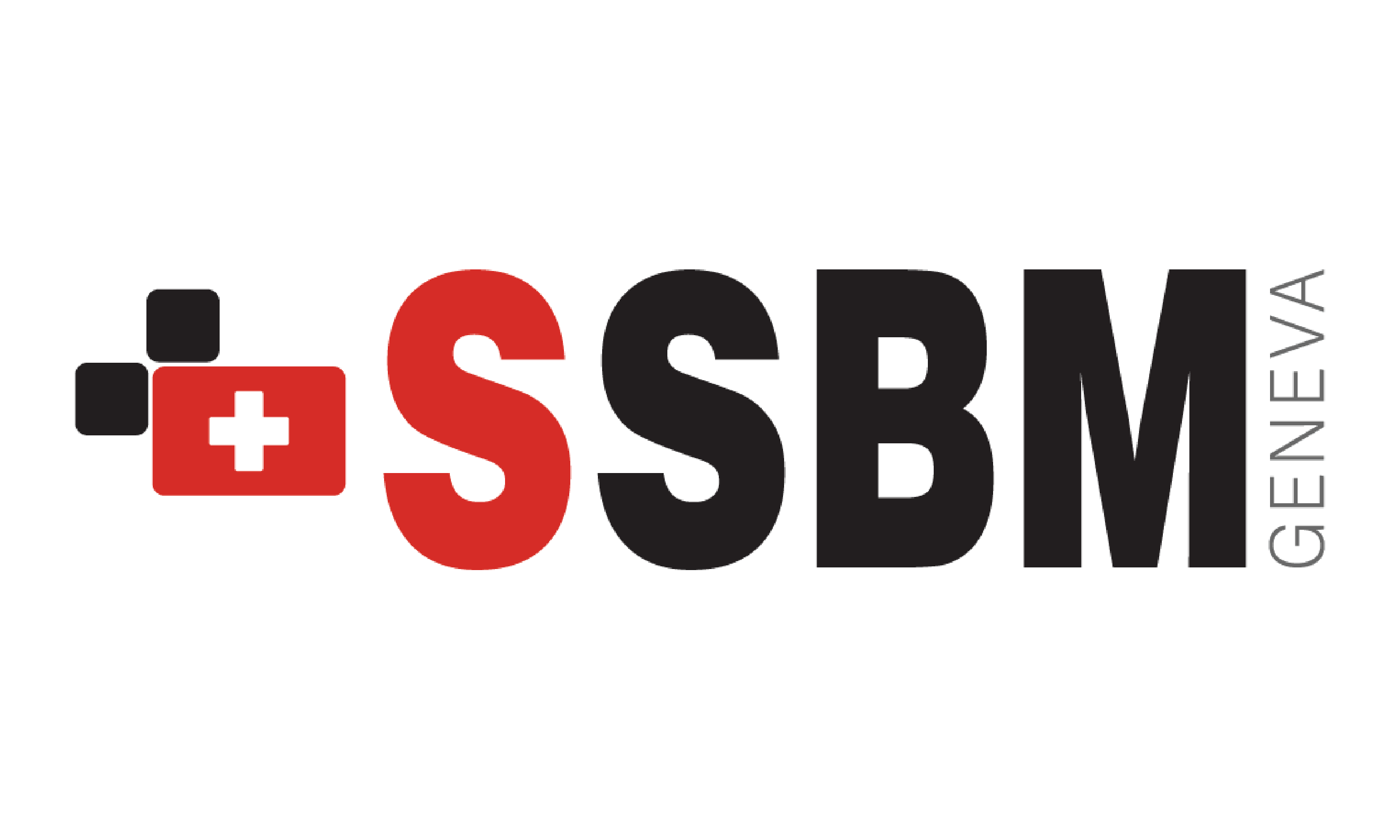
Geneva, Switzerland
Embark on a transformative journey through our Study Abroad programs, offering access to top universities worldwide. Gain global perspectives, cultural insights, and a competitive edge in your career.










"My journey with ISTM has been nothing short of life-changing. ISTM's curriculumis so industry-relevant that I felt prepared for my role even before graduating! The exposure to real-world projects made me job-ready from day one."

"ISTM provided me with a nurturing and supportive environment. The resources and facilities here are top-notch, and the constant encouragement has helped me achieve more than I thought possible. ISTM doesn’t just focus on academics but works to develop us into well-rounded professionals."

"I had the privilege of studying at ISTM, and it’s one of the best decisions I made for my career. The institute provides a perfect blend of theory and hands-on experience. Working on real-life case studies, collaborating with industry professionals, and getting continuous feedback prepared me for a smooth transition into my professional role."

&"ISTM's curriculum is truly industry-driven. The frequent guest lectures and workshops conducted by experts helped me understand real-world challenges and gave me a competitive edge. I completed my internship with confidence and have already started applying what I learned in my role."

"What I loved most about ISTM was the emphasis on innovation and creativity. The faculty encouraged us to think outside the box and approach problems with fresh perspectives. The projects and assignments we undertook were challenging, but they helped me develop critical skills I use every day in my job."

"The teaching methods at ISTM are unique and interactive, making it easy to understand complex concepts. ISTM’s focus on practical experience over rote learning allowed me to truly grasp the material and apply it practically. I feel better prepared to meet industry demands thanks to my time at ISTM."

"I am grateful to ISTM for not only focusing on academic excellence but also encouraging extracurricular activities and leadership skills. I had the opportunity to participate in multiple events, which significantly boosted my confidence. ISTM helped me develop holistically, and I left with the confidence to excel in any setting."

"The best part about ISTM was how it encouraged me to identify and develop my strengths. With the support of mentors and the institute’s many resources, I discovered new career interests and skills I never knew I had. I am grateful to ISTM for helping me evolve both professionally and personally."

"ISTM’s placement cell is very proactive and supportive. They provided continuous guidance, mock interviews, and resume-building sessions that helped me land my dream job. The placement team’s commitment to each student’s success is amazing, and I appreciate the personalized attention they gave."

"ISTM goes beyond textbook knowledge, equipping us with skills we actually need in the professional world. The project-based approach helped me build a portfolio I could present to employers, and it impressed them. ISTM has given me a head start in my career, and I’m so glad I chose this institute."

"ISTM is perfect for anyone who wants to be a leader in their field. The institute doesn’t just focus on hard skills; there’s a strong emphasis on leadership, ethics, and decision-making. The training has been so valuable to me, and I’m grateful for all the experiences ISTM has offered."

"ISTM understands student's needs and has a flexible learning approach. The faculty adjusted the curriculum to fit current industry demands and made sure we received support whenever we needed it. I recommend ISTM to anyone who wants a tailored, quality education."





Submitting your details, please wait...
We will get back to you shortly.






